‘Where Does Grief Go to Die?’: Dealing With the Loss of My Dear Mother
It causes deep anguish to remember the dead soon after their departure. How must we mourn the loss with guilt, anger and a sea of painful memories? Pooja Salvi urges us to try by borrowing courage from the past.
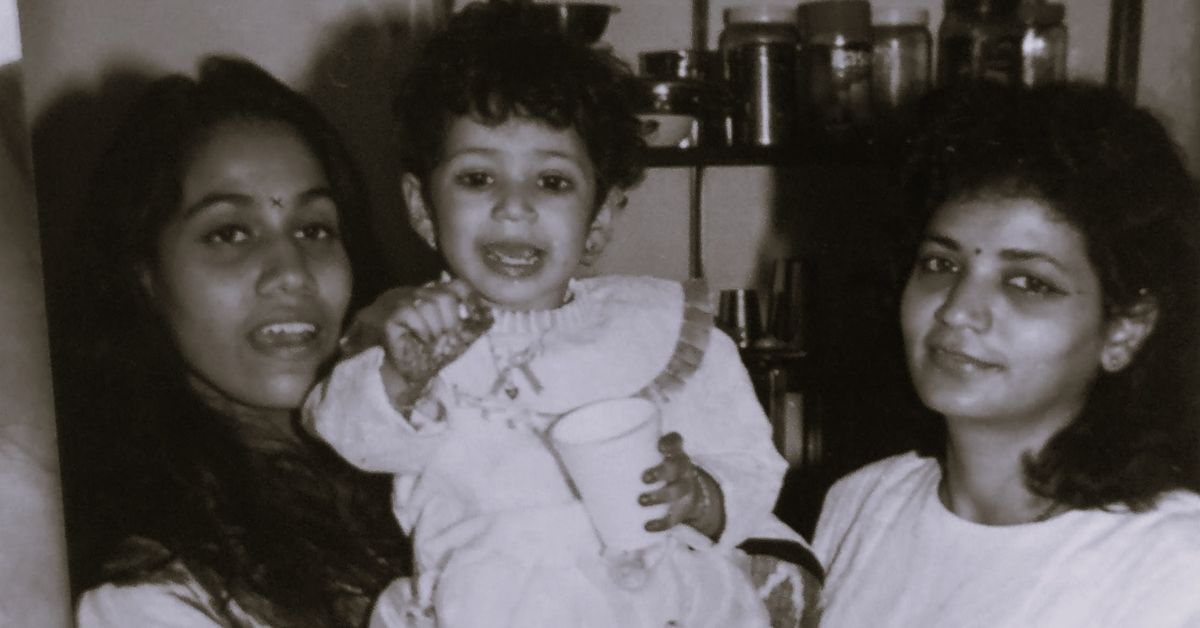
That fear had me in a chokehold. For as long as I can remember, we all slept together — my younger sister in between my mother and me. If I were to wake up in the middle of the night, my eyes would seek the slow, shallow breathing of my mother. In the dark, I’d squint and focus all my might to locate her stomach. Seeing it rise and fall would fill me with relief and I’d go back to sleep grateful at having avoided any potential loss that night.
Every time that my mind conjured the worst possibilities — It could happen anytime, especially when you are away… In the dead of the night or broad daylight… In a sudden accident while walking down the street… I’d chastise it and pull it back to sanity.
Checking on my sleeping mother’s stomach was my way to avoid the frightening reality of her mortality. This routine night-time exercise threatened to expose me to the gallows of death first-hand yet again. I had lived out the nightmare once: my father slept on Saturday night, my sister and I in between our parents, but he never woke up the next day.
“If this were to happen again, I’d like to be prepared,” I thought, naively. But death rarely announces its arrival and grief almost always overstays its welcome.
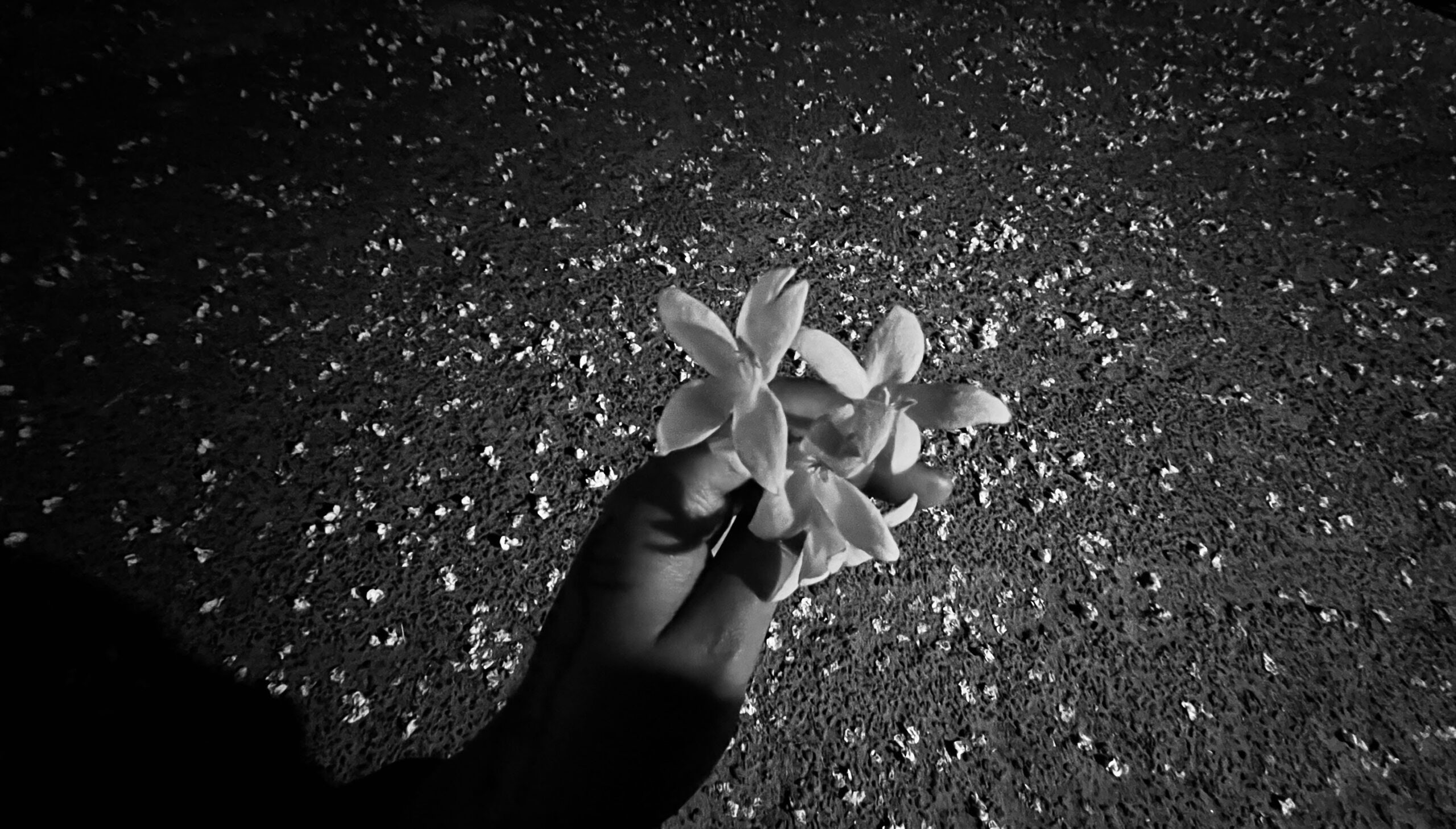
***
For how long shall I avoid
The words that come to me
Those that remain elusive?
How much longer do I keep mum?
Running around in circles, refusing to break this curse…
Every day since my mother’s death has felt unreal — like living in a fever dream with no beginning, no end. A large expanse of never-ending greys stinging the soul. It feels as incomplete as the last words I said to her, and those that I couldn’t say.
I received a terrifying phone call from my sister late in the night. She bawled into the phone from the hospital, her cries stabbed me in the chest miles away, and my heart collapsed on the floor.
It was just 15 minutes before the clock struck midnight on 13 September 2021 — hours before I had turned 27.
***
The sun rises and sets.
The tides rise and fall.
My eyes open and close.
I keep away from my notebook.
I never imagined living without my mother. For as long as I can remember, I pictured her growing old with me and my sister, evolving from a stern, devoted mother to an affectionate grandmother spoiling my children against my wishes. I always knew that she would live a long life alongside me, unwilling to give in to the fragility of old age and be present to pass on her legacy.
But they say that those whose children death embraces are the most unfortunate. Death, so cold and vicious in its ways to not pity the living. Crude and definite. But losing a mother at any age is devastating. For inside, you and I are still children aching to return to a familiar presence.
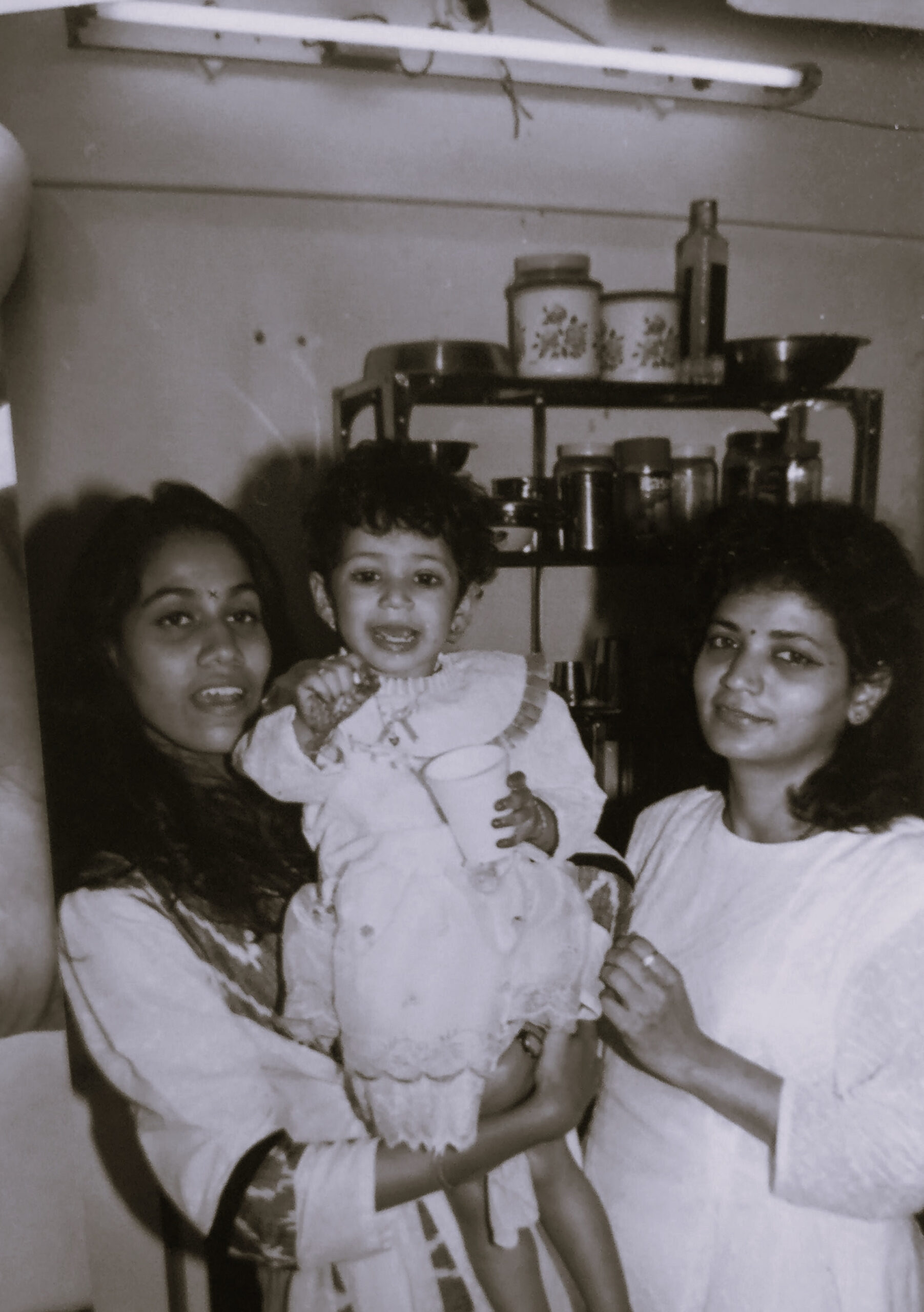
***
I am afraid
Of discovering the ruins of my mind
Of being trapped by memories I can’t relive
Of confronting my regrets
Of engaging with guilt.
My life feels like the stuff straight out of nightmares. Not the ones that jerk you up in the middle of the night in sweats, gasping for breath and water — where once you put your head back on the pillow, your hands entangled in another’s, your ears keen for the shallow breathing of company, you ease back into sleep. My nightmares have bound me in shackles of never-ending grief — those that I cannot break out of.
***
I wait for the pain to subside
To pick up the pen.
Or should I pick up the pen
For the pain to subside?
Looking back now, our life together feels like a surreal dream. Moments shared feel close to the heart but distant from my reach. In my mind, I keep replaying memories — the ones that make me giddy and those that burn the soul, each a sore reminder of her absence. Every other morning, I wake up to a fresh new detail resurfaced after years of being dormant. Like that evening in 2008 when we lived in a small 1 BHK flat with its white-washed walls tinted yellow with the setting sun, just living everyday life and chatting about nothing.
The rest of my day is spent yearning for a connection with her — a call, perhaps, asking me if I had my lunch. Or a message seeking a call if I am not burdened with work. Maybe she could send me a picture of the kombadi vade [tr: chicken curry and fried dumplings] she cooked for lunch or the remnants of last night’s chavali usal [tr: black-eyed bean curry]. I’d also make do with a voice note, giving me information about stray topics like the state of her money plant and the new blooms of her bougainvillaeas.
To those who knew her, she’d go on at length about how much of a difficult child I was. So haughty, so naughty! She would also tell you how I have the tendency to give up easily. “She doesn’t have a thick skin. She allows the world to intrude on her thoughts — it is her only flaw,” she’d shake her head. I will admit — I wallow my days in temporary zest.
Take for instance the time she was teaching me how to cycle. The training wheels had been taken off despite my protests. It was time now, there was no more lounging in the comfort zone. To add another level of challenge, she even had the cycle mechanic increase the saddle height so now my feet won’t even reach the ground with ease — I’d have to jump off to stabilise myself, and break my fall with the fear of falling hanging over my head was out of the question. Her idea behind that was simple — it would help increase my height.
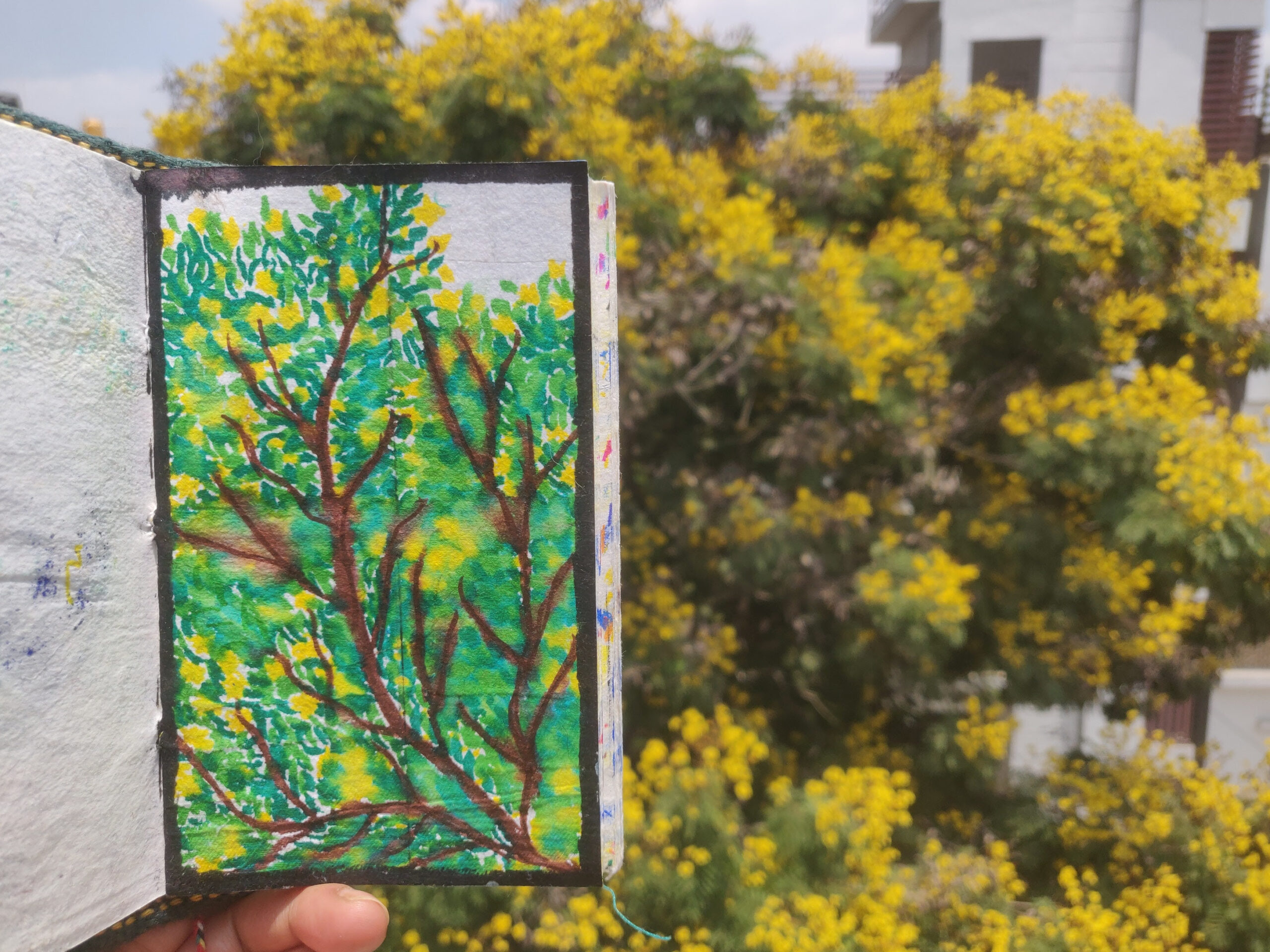
“It is as simple as walking. Pedal one foot after the other — keep your legs moving, never stop,” she instructed me while holding the cycle from behind. Struggling to balance and pedalling were perhaps the most difficult tasks for a 7-year-old to do. To make matters worse for me, she easily slipped into the skin of old military personnel, shouting orders and commanding strength. My crying and whinging wouldn’t get me far. “Move your feet!” she’d shout from behind at intervals.
Once when I looked back, she wasn’t holding my cycle. I fumbled, lost my balance and went crashing down. She walked up and reprimanded me. “Keep your eyes in the front and move your feet.” No words of pity, none of tender.
But it took me no time to pick up cycling. I would zoom past even the big boys on their tall Hero-es and Atlas-es, the wind in my hair, strength in my arms and power in my thighs. Years later, I would take my sister to school on the cycle, with her sitting pillion and our bags stuffed in the basket in front.
One would imagine that the cycling would have filled me with ample courage. But my mother knew it was only one small step. She could never see me get comfortable with one skill. This would risk maiming my curiosity, threatening to make me complacent. She’d always make me try new things no matter how intimidating the prospect seemed to me. And that is how I joined swimming classes.
With floaters, swimming was easy. But when it was time to dive into the deep end, I’d shiver, my knees giving away to the weight of the fear racing through me. She’d sit by the bleachers shouting at me to move my feet and arms. I’d not jump in myself so she would make a coach throw me in. Once in the water, I’d freeze, the water pulling me down, all my anxiety an anchor. The second coach in the pool was forbidden to help me. “Move your legs or I’ll come in there to whack you,” she’d yell in front of all my peers and their parents, disregarding my fears.
What I know today is she was pulling me out of my fears. With her mere presence there and her constant shouting, I’d struggle — at first to keep my head above water and then learn to strategically move my limbs in unison. It took me a while to learn how to swim but I did it. She made me do it, she pushed me to do it. She showed me how I can do it.
My mother taught me a lot of things. All my words come from her, for her. Every imagination my mind conjures stems from her dreams. My plans for today and tomorrow feel irrelevant in her absence.
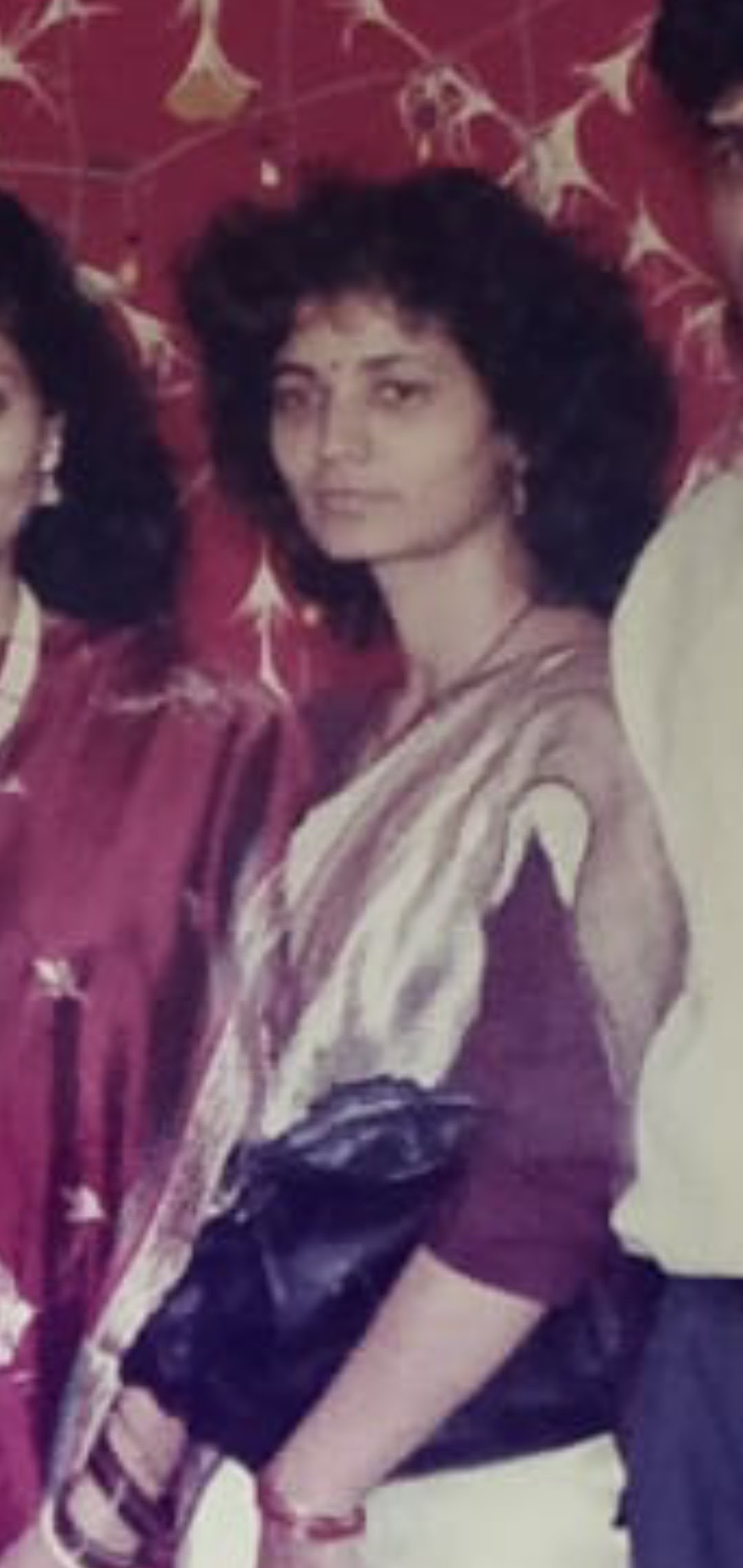
I go most days without giving into grief. I pack all the knots in my heart in a bottle and bury it in the back of an almirah promising myself I will get to it in due time. But sooner or later, it catches me off guard, debilitating me.
***
I must go,
Write now.
I must string it all together
In ailing sentences.
Time is running out, the clock has stricken
I must write.
Now.
(Written by Pooja Salvi, this story was first published on Grievances from the Grieving, a newsletter about trying to understand grief and navigating the aftermath of loss. Edited by Yoshita Rao)
If you found our stories insightful, informative, or even just enjoyable, we invite you to consider making a voluntary payment to support the work we do at The Better India. Your contribution helps us continue producing quality content that educates, inspires, and drives positive change.
Choose one of the payment options below for your contribution-
By paying for the stories you value, you directly contribute to sustaining our efforts focused on making a difference in the world. Together, let’s ensure that impactful stories continue to be told and shared, enriching lives and communities alike.
Thank you for your support. Here are some frequently asked questions you might find helpful to know why you are contributing?


This story made me
-
97
-
121
-
89
-
167













